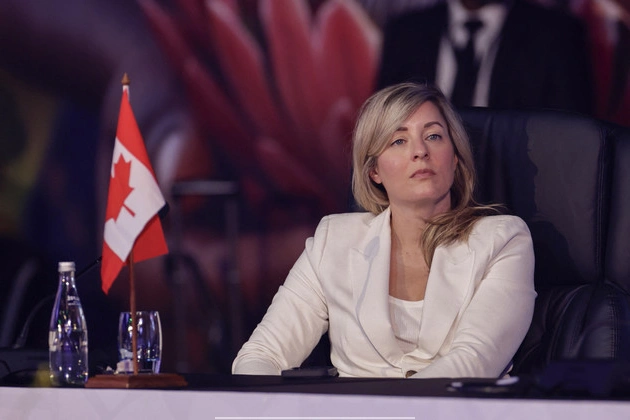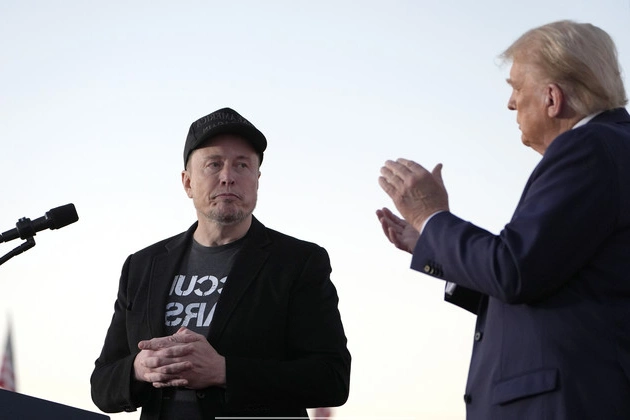
The Impact of Trump on Canada's Political Landscape: A Deep Dive into the Leadership Race
OTTAWA — The political landscape in Canada is undergoing a significant shift as the country prepares to replace Prime Minister Justin Trudeau. At the forefront of this change is the looming presence of Donald Trump, whose influence is shaping the dynamics of the upcoming Liberal Party leadership contest.
The Battle for Trade and Negotiation
One of the defining questions in the leadership race revolves around how to navigate the challenges posed by the incoming U.S. president and his tariff threats. Chrystia Freeland, a prominent figure in Canadian politics, has entered the race with a bold stance on trade issues. As a trade hawk, she advocates for retaliatory measures against American exporters, emphasizing the need for precise and targeted responses to any potential tariffs imposed by President Trump.
On the other hand, Mark Carney, a former central bank head, presents himself as a skilled negotiator capable of handling the complexities of dealing with the Trump administration. Despite his lack of political experience, Carney positions himself as the best candidate to engage with the White House under Trump’s leadership.
The Davos Dilemma
Traditionally, this period sees key contenders like Freeland and Carney attending the World Economic Forum in Davos. However, the current scenario finds them engaged in a fierce battle against each other, with a shared focus on addressing Trump’s policies. Amidst criticisms from Conservative quarters, both candidates, known for their elite educational backgrounds, strive to connect with ordinary Canadians.
The Conservative Challenge
Conservative Leader Pierre Poilievre has been quick to capitalize on the discontent surrounding Trudeau, Freeland, and Carney, labeling them as “economic radicals” with a disconnected globalist agenda. As the political landscape evolves, the Conservatives maintain a significant lead in polls, with a growing emphasis on economic concerns and job stability.
The Road Ahead
With the Liberal Party set to elect its new leader in March, the focus shifts to the eventual showdown in the 2025 elections. The ability to effectively respond to the evolving Trump administration remains a crucial factor in shaping political narratives and voter sentiments.
Freeland’s Legacy and Trump’s Response
Chrystia Freeland’s role in negotiating the new NAFTA agreement underscores her determination to safeguard Canada’s interests in the face of Trump’s trade policies. Despite Trump’s public criticism of her approach, Freeland leverages his attacks as a testament to her resilience and negotiation skills.
The Path Forward
As the political campaign intensifies, the narrative surrounding Freeland’s candidacy draws parallels to global figures like Kamala Harris, highlighting the interconnectedness of Canadian politics with international dynamics. The Conservative camp continues to emphasize the need for change and economic stability, resonating with voters’ concerns.
Conclusion
The upcoming leadership race in Canada underscores the pivotal role of leadership in navigating the challenges posed by the Trump administration. As candidates like Freeland and Carney vie for the Liberal Party’s top position, their strategies and responses to Trump’s policies will shape the country’s political trajectory for years to come.















